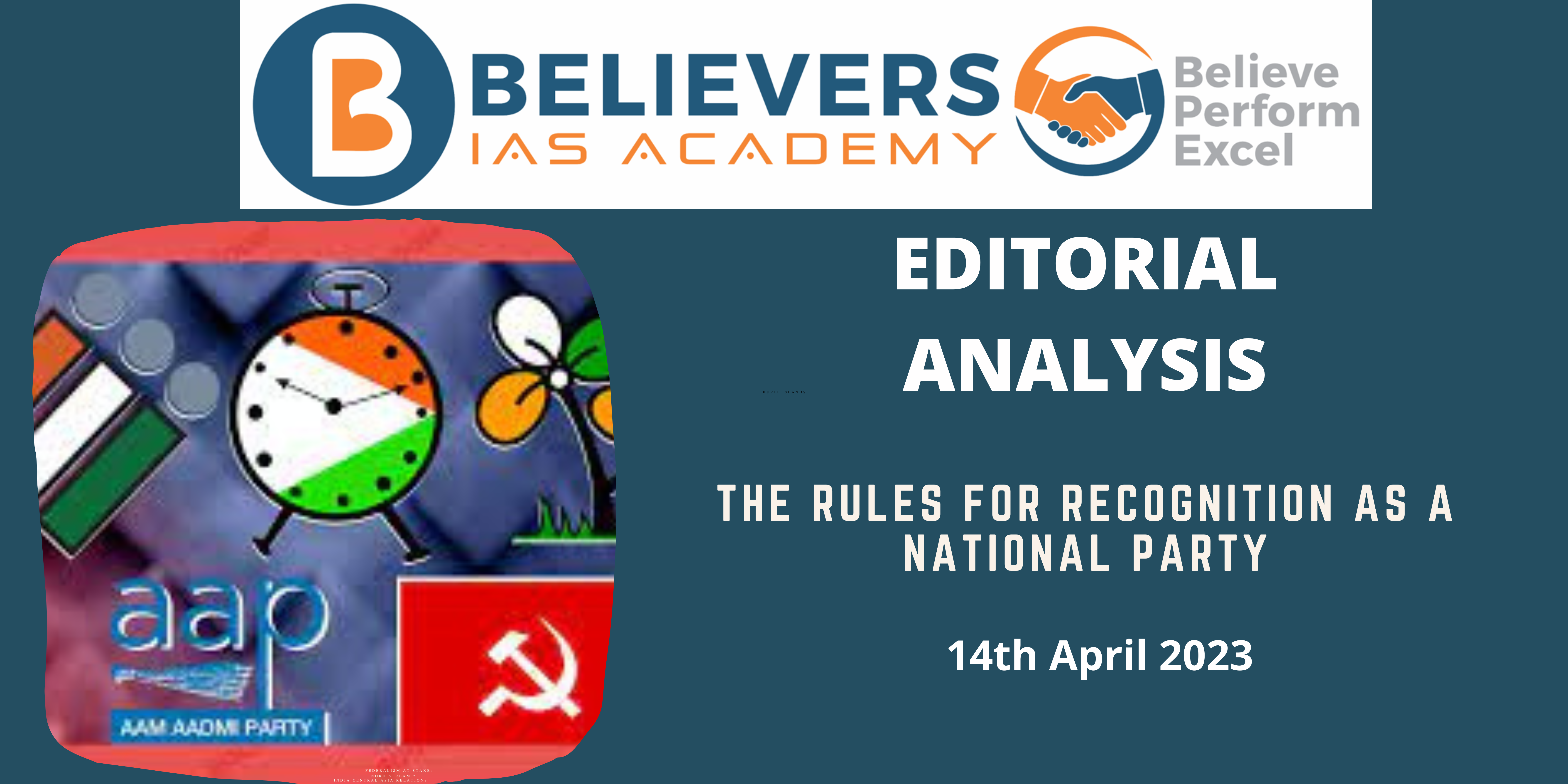The Rules For Recognition As a National Party
Context:
The Arvind Kejriwal-led Aam Aadmi Party (AAP) received a shot in the arm from the Election Commission of India on April 10, when the poll authority granted it the status of a national party. Meanwhile, the Trinamool Congress (TMC), the Communist Party of India (CPI), and the Nationalist Congress Party (NCP) all lost their status as national parties. The EC also removed certain parties’ recognition as State parties.
How a party can get recognized as a national party
- According to the Indian Election Commission, a political party is eligible for recognition as a national party if it meets one of the following criteria.
- During a general election for the Lok Sabha or Legislative Assembly, the party receives 6% of the vote in any four or more states, and it also receives four Lok Sabha seats.
- In the Lok Sabha election, the party should gain 2% of the seats from at least three different states.
- In four states, the party was recognized as a state party.
Benefits of being recognized as a state party
- Reservation of the party symbol: Once a party is recognized as a state party, it receives exclusive rights to use a specific electoral symbol in state assembly elections.
- Access to a state’s electoral rolls: A recognized state party gets access to a state’s electoral rolls, which can be used to identify potential voters and plan election campaigns.
- Party money: The Election Commission of India (ECI) provides funds to state parties for administrative and election-related expenses.
- Representation on the state election commission: A recognized state party may appoint one of its members to the State Election Commission.
Benefits of being recognized as a national party:
- Reservation of the party symbol: A national party is entitled to a reserved symbol that can be used to fight parliamentary and assembly elections in all Indian states and union territories.
- Access to electoral rolls: A national party, like a state party, has access to the electoral rolls of all Indian states and union territories.
- Party finances: A national party is entitled to more cash from the ECI than a state party. This includes administrative as well as election-related costs.
- Representation in the ECI: A national party may appoint one of its members to the Election Commission of India.
- Eligibility for state party recognition: A national party is immediately eligible for state party recognition in each state or union territory where it contests elections.




